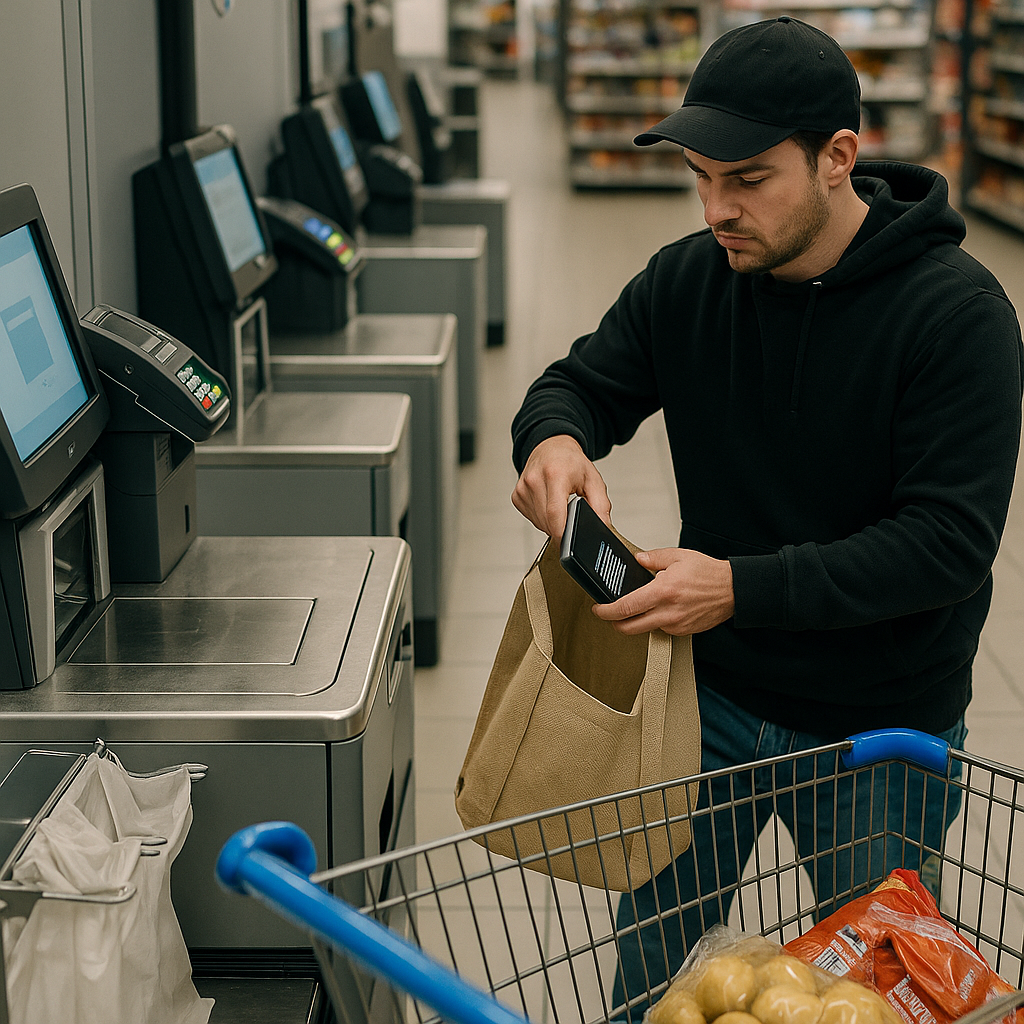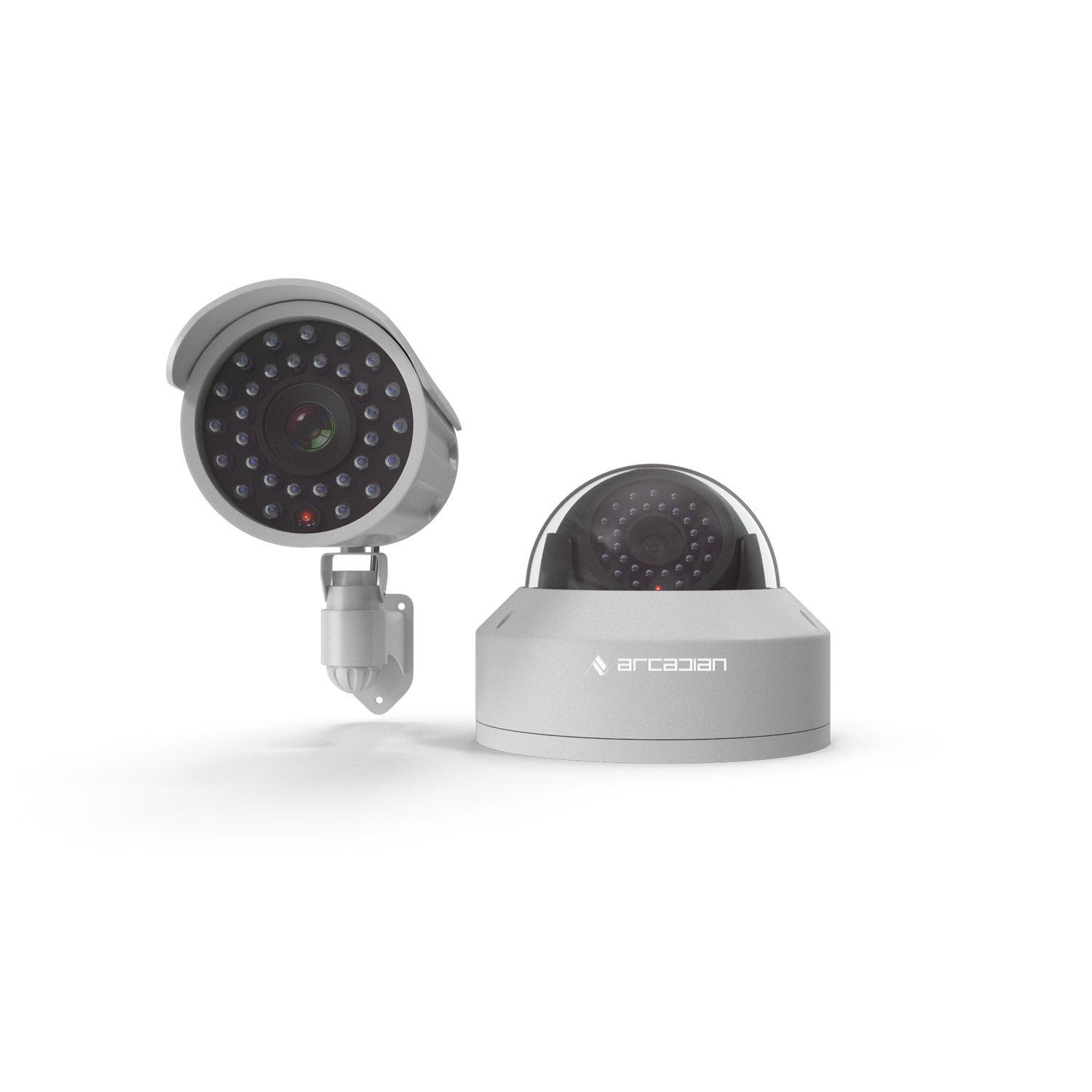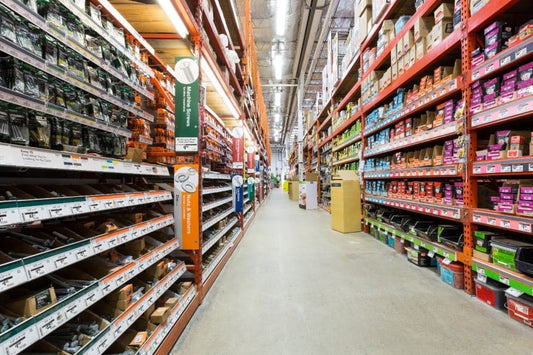The Dirty Secrets of Retail Loss Prevention: Why Walmart, Target, and CVS Are Failing at Stopping Theft
From cartel-linked theft rings to tragic employee deaths, big-box retail loss prevention is collapsing under its own outdated rules. ArcadianAI’s Ranger is the disruptive fix the industry doesn’t want to admit it needs.

Introduction — Billions Lost, Policies Broken
Retail shrink has ballooned to an estimated $112 billion in 2024 (National Retail Federation), a staggering increase from $93.9 billion the year before. The culprits? A dangerous mix of organized retail crime (ORC), internal theft, and policies that are more about legal optics than actually stopping crime.
Walmart, Target, CVS, Walgreens, and others have invested millions into loss prevention (LP) — yet theft continues to rise. Instead of prevention, their policies often protect corporate PR, avoid lawsuits, and appease shareholder concerns while leaving employees, customers, and merchandise vulnerable.
ArcadianAI’s Ranger is designed to close these gaps — delivering real-time, compliance-aware AI surveillance that detects, verifies, and escalates threats before they turn into losses. Unlike Verkada, Genetec, Milestone, or Eagle Eye Networks, Ranger is camera-agnostic, cloud-native, and built for action, not just evidence.
Quick Summary / Key Takeaways
-
Big retailers often prioritize PR and liability avoidance over theft deterrence.
-
Hands-off policies invite repeat offenders and embolden organized crime rings.
-
Compliance laws like ORC acts, NDAA, and PCI-DSS exist but are unevenly enforced.
-
Criminal networks exploit policy gaps — from cartels to pawn shop resellers.
-
ArcadianAI’s Ranger enables live detection, verification, and rapid escalation.
Background & Relevance
-
Shrink Rate Spike: NRF data shows a 27% increase in organized retail crime incidents from 2023 to 2024.
-
Repeat Offenders: Police reports confirm 60–80% of retail theft is committed by repeat offenders who know store policies.
-
Compliance Complexity: Retailers juggle ORC laws, NDAA hardware compliance, PCI-DSS data security, OSHA employee safety, and privacy rules (CCPA, GDPR). Few enforce them consistently.
Core Topic Exploration — The Real Incidents That Expose the Problem
Walmart’s “Hands-Off” LP Policy — Safety or Invitation?
Walmart’s internal LP guidelines instruct associates not to physically stop shoplifters, prioritizing employee safety and lawsuit avoidance. Yet this policy has created a perception among thieves that Walmart is an easy target.
Criminals often hit the same store multiple times — knowing they’ll be recorded, but not stopped in the act.
Target’s Felony Threshold — A Gift to Professional Thieves
Target delays prosecution until theft totals exceed a certain value (often $500+), aiming for felony charges to stick. In theory, it’s a smart legal tactic; in practice, it’s a loophole. ORC crews split theft across multiple members, staying just under the limit — sometimes for months.
CVS & Walgreens — The Passive Camera Problem
These chains have extensive CCTV networks — but footage is often reviewed after the fact. Without AI-driven real-time detection, security teams are essentially archiving evidence rather than preventing theft.
When Policies Kill — The Blake Mohs Tragedy (Home Depot, April 2023)
In Pleasanton, CA, 26-year-old LP associate Blake Mohs confronted a shoplifter. She pulled a gun and fatally shot him before fleeing. Mohs was due to be married months later.
In June 2024, shooter Benicia Knapps was sentenced to 19-to-life; getaway driver David Guillory received over seven years.
This tragedy underscores the tension between no-contact LP policies and the unpredictable reality of retail theft. Mohs followed procedure — and still paid the ultimate price.
Cartel-Linked ORC in Houston (April 2025)
Authorities busted a theft ring operating out of Houston’s Katy Mills Mall. Linked to Mexican cartels, the crew targeted brands like Tommy Hilfiger and Guess, coordinating via earpieces and using modified suitcases to bypass alarms. Estimated losses topped $100 million nationwide.
The group thrived in malls where surveillance was outdated, policies were reactive, and response times were slow.
The Pawn Shop Pipeline (Broward County, 2025)
Seven pawn shop employees were arrested for buying and reselling stolen goods — much of it from CVS, Walgreens, Home Depot, and Walmart. Items were still in factory packaging, underscoring how quickly stolen goods can re-enter the market when LP fails to act in real time.
The Compliance Gap
Key frameworks in retail LP:
-
ORC Laws — Vary by state; underutilized due to policy delays.
-
NDAA Compliance — Bans certain foreign-made security hardware.
-
PCI-DSS — Protects cardholder data; often siloed from physical LP efforts.
-
OSHA — Requires safe working conditions; affects confrontation rules.
-
CCPA/GDPR — Governs privacy in surveillance and customer data use.
ArcadianAI’s Ranger integrates compliance directly into AI workflows, ensuring detection, escalation, and reporting are both legal and immediate.
The Technology Deficit
| Platform | Camera-Agnostic | Real-Time AI | Compliance Built-In | LP Focus | Hardware Lock-In |
|---|---|---|---|---|---|
| ArcadianAI Ranger | ✅ | ✅ | ✅ | ✅ | None |
| Verkada | ❌ | Limited | Partial | Medium | High |
| Genetec | ✅ | Limited | Partial | Medium | None |
| Milestone | ✅ | No | Partial | Low | None |
| Eagle Eye Networks | ✅ | Limited | Partial | Medium | None |
Why ArcadianAI’s Ranger Is Different
-
Camera-agnostic — Works with existing CCTV, IP, and cloud cameras.
-
Real-time detection — Identifies ORC patterns before checkout.
-
Automated compliance — Incident logs align with ORC laws, NDAA, PCI-DSS, OSHA, and privacy regs.
-
Safe escalation — Sends context-rich alerts to monitoring teams without forcing store staff into dangerous confrontations.
Common Questions (FAQ)
Q1: Do hands-off policies work?
They reduce legal risk but invite repeat, organized theft.
Q2: How can AI help with ORC?
By spotting coordinated theft patterns in real time and alerting LP before merchandise leaves the store.
Q3: Is ArcadianAI compliant with privacy laws?
Yes — CCPA/GDPR safeguards are built in.
Q4: What about employee safety?
Ranger removes the need for in-person confrontation, reducing risk to staff.
Conclusion & CTA
Theft is no longer a random act — it’s organized, coordinated, and emboldened by flawed policies. Walmart’s hands-off rules, Target’s felony thresholds, and CVS’s passive monitoring give criminals an operational edge.
ArcadianAI’s Ranger flips the script, delivering real-time, compliance-aware, camera-agnostic AI surveillance that detects, verifies, and escalates threats safely.
See ArcadianAI in Action →
Internal Links:
External References:

Security is like insurance—until you need it, you don’t think about it.
But when something goes wrong? Break-ins, theft, liability claims—suddenly, it’s all you think about.
ArcadianAI upgrades your security to the AI era—no new hardware, no sky-high costs, just smart protection that works.
→ Stop security incidents before they happen
→ Cut security costs without cutting corners
→ Run your business without the worry
Because the best security isn’t reactive—it’s proactive.







